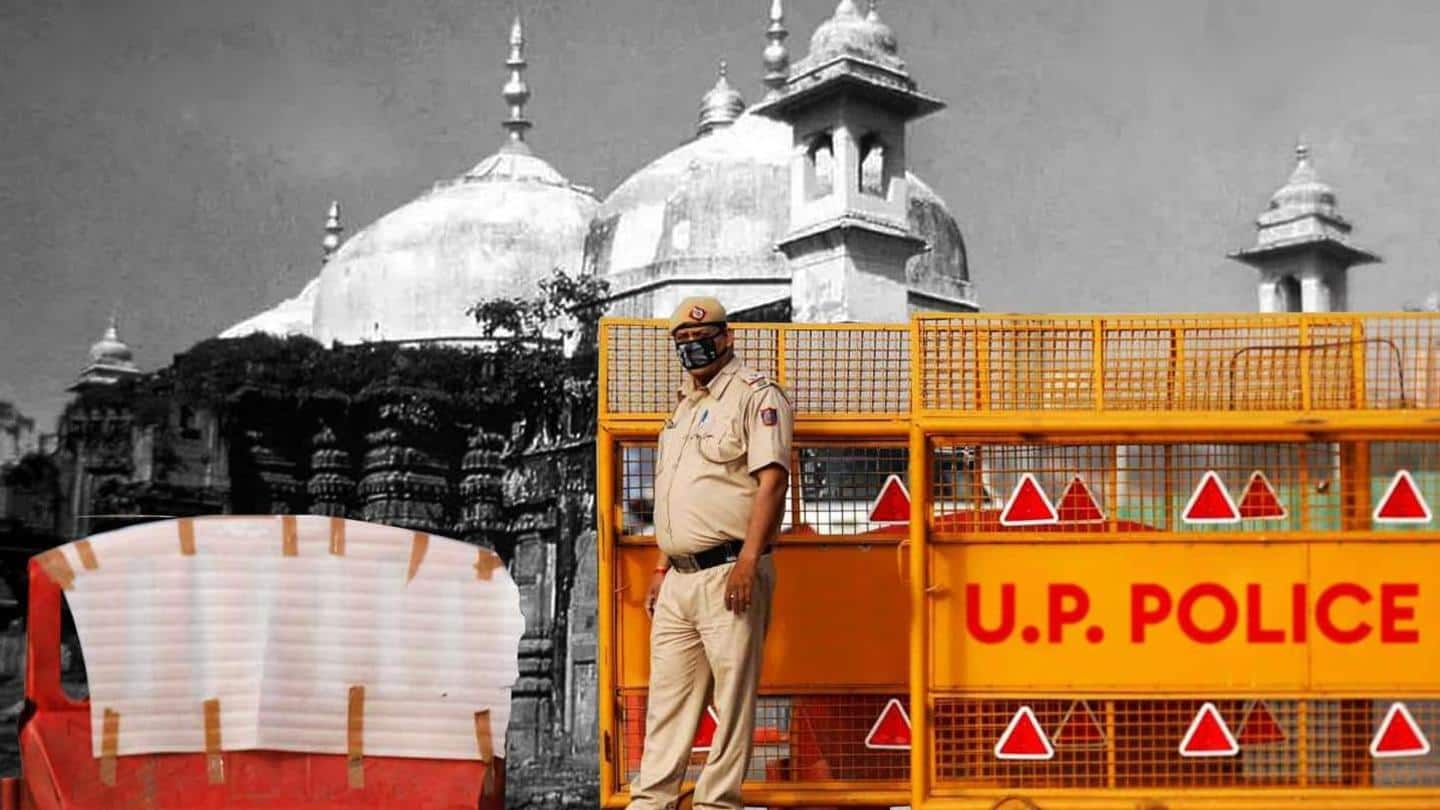
Gyanvapi Mosque case: Varanasi court reserves judgment till Tuesday
What's the story
A local court in Varanasi on Monday reserved its judgment on the Gyanvapi Mosque case after hearing the petitions.
The pleas, among other things, have sought permission to worship the alleged Shivling found inside the mosque and alternate arrangements for wazukhana inside the mosque.
Earlier, the Supreme Court (SC) had handed over the case to the district judge.
Context
Why does this story matter?
After a Shivling was allegedly found inside the mosque complex last week, a Varanasi court directed to seal the spot. However, Anjuman Intezamia Masjid said it was part of the wazukhana's fountain.
The SC also ordered authorities to protect the area without hindering Muslims' access to namaz.
On Thursday, a videography survey team submitted its final report on the complex to the Varanasi court.
Petitions
Demands made in petitions
The Hindu devotees submitted two of the three petitions heard on Monday, while the mosque's management committee filed one.
Demands made in the Hindus' petitions include permission for daily worship of Shringar Gauri in the Gyanvapi Mosque complex, permission for the worship of the Shivling, a survey to determine the length and width of the Shivling, and a provision for an alternate wazukhana arrangement.
Information
Mosque committee invoked Places of Worship Act, 1991
Meanwhile, the management committee of the Gyanvapi Mosque petitioned that no wazukhana be sealed at the mosque complex. It also requested the court to review the mosque's survey and the case as per the provisions of the Places of Worship Act, 1991.
Details
SC gives 8-week deadline to district court
To recall, the Supreme Court had given the district court eight weeks to finish its hearing.
It ruled that because civil litigation is sensitive, the district court should hear the case instead of the civil judge.
Later, the district court ordered that only the lawyers involved in the case be present at the hearing.
Meanwhile, the security outside the court has been beefed up.
Context
Controversy began in 1991 after petitions against mosque
In 1991, lawyer Vijay Shankar Rastogi had filed a petition in a Varanasi court as the "next friend" of the Kashi Vishwanath Mandir's presiding deity.
Rastogi had argued that Maharaja Vikramaditya built a temple 2,050 years ago on the site where the mosque stands.
Other petitioners claimed Aurangzeb built the mosque in the 17th century by removing a portion of the Kashi Vishwanath Mandir.
Background
1991 case was on hold for years
The 1991 case was on hold for several years until the Allahabad HC suspended the hearing.
The HC's decision was based on the Places of Worship Act, 1991, forbidding any changes to the religious character of a place of worship as it was on August 15, 1947.
However, the case resurfaced in 2019 following the Supreme Court's decision in the Babri Masjid-Ram Janmabhoomi case.